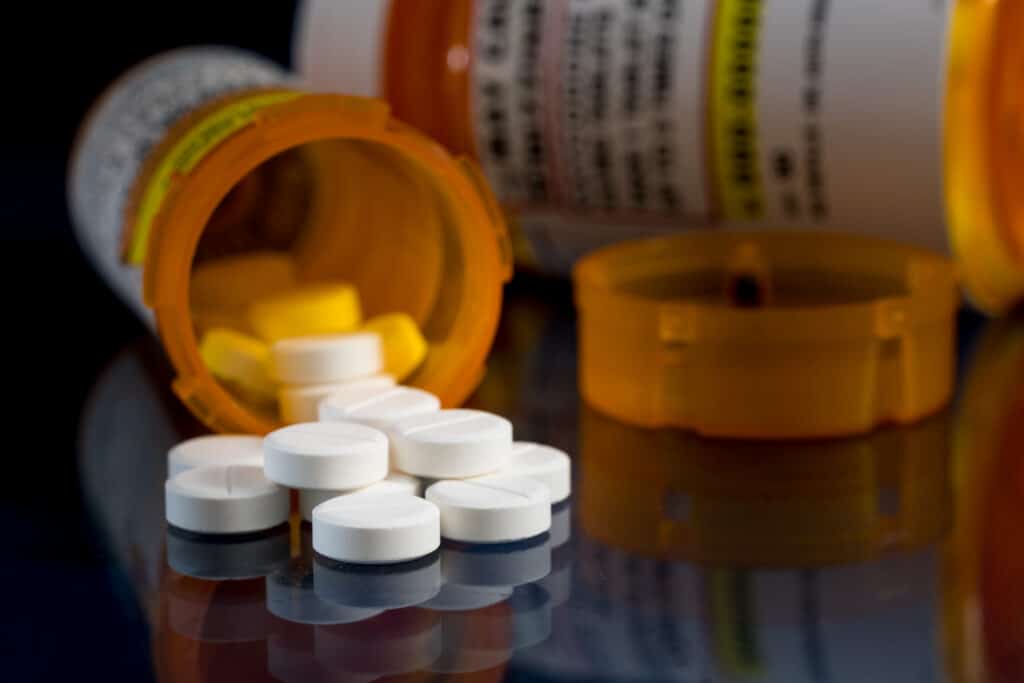New research and methodologies demand fresh perspectives; modern challenges like the opioid crisis are constantly evolving, and require updated facts and information to manage successfully.
Mary Ellen Biggerstaff is a Doctor of Nursing Practice (DNP), a Family Nurse Practitioner, an Assistant Professor of Nursing at Frontier University, and she runs a rural clinic in Elma, Washington for underserved populations that specializes in management and treatment of opioid use disorder. She is one of the many industry experts creating courses for Premiere, and has created several courses focusing on opioid administration protocols for healthcare professionals.
We sat down with her to talk about all things opioids, outpatient treatment, and her work in continuing education with Premiere.
Premiere: Tell us about your professional experience.
Mary Ellen: Even though I’m a family nurse practitioner, my clinical experience has been in a community with a significant opioid use disorder problem. Rural America has been hit the hardest by the crisis, and since I started in 2009, my clinical practice has morphed into a focus on opioid use treatment.
Premiere: What kind of problems are you confronted with at your clinic?
Mary Ellen: We are a drop-in primary care and medication-assisted therapy (MAT) clinic. We’re low barrier, which means anyone can walk in, and a lot of the population we serve is homeless or very unstable. We also have a lot of patients who are dropped off after being incarcerated, and we try to bridge them until they can get into an established primary care. We provide our patients with things like insulin, psychiatric meds, and opiate use treatment.
Premiere: That must present very complex treatment protocols.
Mary Ellen: Absolutely. You can’t separate a patient’s addiction from their life, and we try to meet as many of those needs as we can. There are good reasons why some programs focus on addiction, but we have patients who walk in who also desperately need an asthma inhaler. That’s part of being a low barrier clinic, and it’s very rewarding. I love working with this population and really like my patients.
Premiere: What are some of the misconceptions about the opioid crisis and its treatment?
Mary Ellen: It’s very entrenched in American thinking that opioid addiction is a moral failure, and consequences are simply a part of those choices. However, anybody who works in addiction quickly realizes that it’s a disease—it’s the same as bipolar disorder or diabetes. They need support to gain control and reduce the harm it causes in their life.
Premiere: A lot of people seem to view addiction as a moral failing instead of a disease. How do you explain the difference to them?
Mary Ellen: We all do things that are not a good idea, and may even be harming us, right? In many cases, we continue to do them because our brains can’t override the impulse despite being aware of the negative consequences.
Addiction is a more severe version of that. Being unable to shut off the desire to eat sugar, for instance, can have negative health consequences, but the stakes are much higher for opioids and alcohol. Opioids in particular override so much of our brain’s capacity for judgment that it drives people to do things that would horrify them when they are sober. But it’s the same core brain function problem as eating too much sugar.
I think it’s something that everybody understands, and it just takes some people longer to make the connection. After all, that realization has to happen in our brains too!
Premiere: How do people become addicted, and how long does it take?
Mary Ellen: A synthetic opioid like fentanyl can be used as a part of proper medical care, but because it’s very powerful and can be produced synthetically it’s both highly addictive and widely available. Heroin is still a crop, so there’s a limit to how much can be produced. That’s why fentanyl is such a problem—you can make a nearly unlimited supply.
That being said, when it comes to managing severe acute pain, opioids are our only option. If you have surgery, for instance, you may have to have opioids, but you’re only going to receive them for a short period of time and then you’re done.
Chronic pain is where opioid addiction becomes a serious concern. Roughly a quarter to a third of the population can become addicted very quickly, so using an opioid like Oxycontin is extremely risky. Some people can get hooked after a single dose, and if your brain is predisposed to addiction it will light up faster and override your impulses. Unfortunately, there’s no way to tell in advance. If you have a history of addiction in your family you need to be very careful with opioids.
Premiere: How do you guard against that in your practice?
Mary Ellen: We do not prescribe any opiates for chronic pain in my practice, with one exception: a terminal illness like cancer. If someone comes in who is struggling with opioid addiction, we may try to taper them off using buprenorphine.
Premiere: Final question—tell us a little about your time with Premiere.
Mary Ellen: I’m really grateful for the opportunity to contribute to continuing education. I’ve seen a lot of CME for opioid use and MAT (medication-assisted therapy), but I don’t see much including harm reduction. It’s such an important part of the conversation when you’re talking about addiction being a disorder rather than a moral failing.
Premiere has been a wonderful opportunity to make a difference in how people view opioid use disorder, and I love that it’s nurse driven. That perspective is so valuable for developing CME, and it’s been a privilege and a pleasure working with Dr. Arbour to create these courses!
Explore Mary Ellen’s Courses
Mary Ellen Biggerstaff has created several courses on opioid use disorder for Premiere. Safe Opioid Treatment (also available in 3 hours) and Chronic Pain: Therapies, Treatment, and Management Options will keep you up to date and compliant on opioid use, abuse, and treatment.



